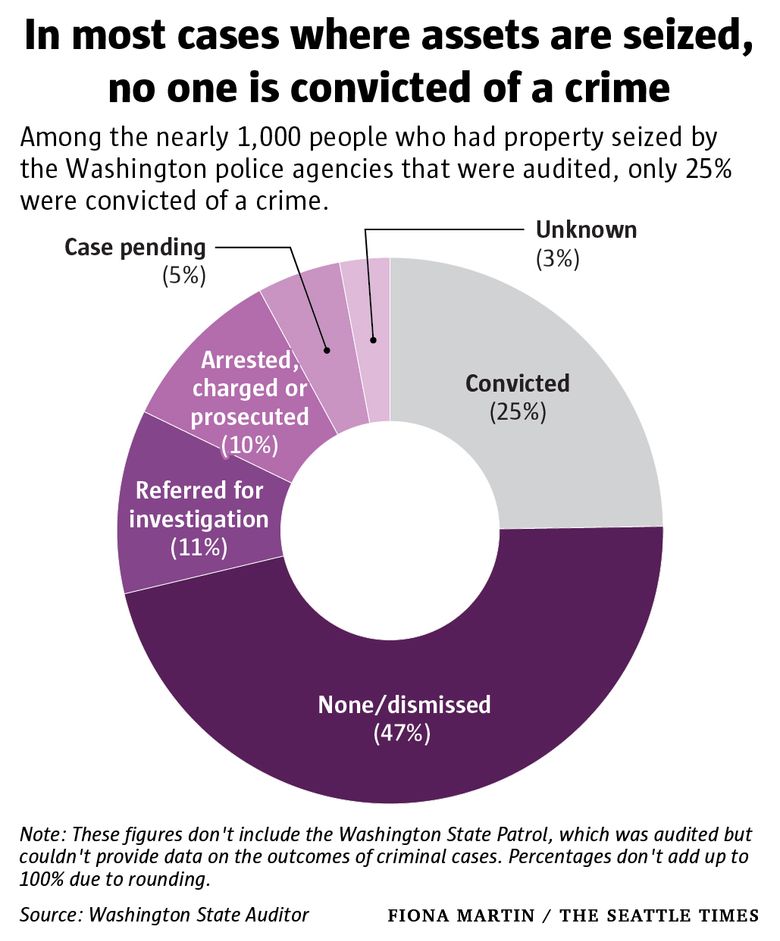:quality(70)/d1hfln2sfez66z.cloudfront.net/11-12-2019/t_b5bf72ca8bc04cd1ba4c039b6dc1ee5f_name_2927F3CB11354590AA0E701EF29B5C6E.jpg)
Photo courtesy of Kiro News 7.
In State v. Stott, the WA Court of Appeals held that a “Net Nanny” police sting operation was not outrageous government conduct, even though the police used deception, because the defendant clearly pursued the “victim.”
For those who don’t know, “Net Nanny” sting operations infiltrate online communities where child exploitation activities often take place. Undercover officers pose as minors and engage with individuals involved in soliciting children for sexual purposes. Through careful investigation and monitoring, law enforcement agencies are able to gather evidence and identify perpetrators.
BACKGROUND FACTS
Mr. Stott allegedly communicated with an undercover Washington State Patrol (WSP) officer who was posing as a fictional 13-year-old girl (“Kaci”). Mr. Stott was now targetted in an online sting operation aimed to find and arrest adults seeking sex with children. Stott was apprehended by police upon leaving his home to meet up with “Kaci.” He was charged with numerous sex offenses.
Stott moved to dismiss the charges against him. He claimed he was denied due process as a result of outrageous government conduct stemming from the sting operation. The trial court, after applying the five-factor test outlined in State v. Lively, denied the motion. Stott was convicted following a jury trial. He appealed his conviction on grounds that the trial court improperly denied his motion to dismiss.
COURT’S ANALYSIS & CONCLUSIONS
The WA Court of Appeals (COA) began by saying outrageous government conduct happens when the actions of law enforcement officers are so outrageous that due process principles would absolutely bar the government from invoking judicial processes to obtain a conviction. For the police conduct to violate due process, the conduct must shock the universal sense of fairness.
Next, the COA re-analyzed the the five-factor test outlined in State v. Lively. The test addresses whether government conduct constitutes a due process violation under the “totality of the circumstances.” Our supreme court in Lively outlined five factors for courts to consider in determining whether outrageous government conduct occurred: The five factors are (1) whether the police conduct instigated a crime or merely infiltrated ongoing criminal activity; (2) whether the defendant’s reluctance to commit a crime was overcome by pleas of sympathy, promises of excessive profits, or persistent solicitation; (3) whether the government controls the criminal activity or simply allows for the criminal activity to occur; (4) whether the police motive was to prevent crime or protect the public; and (5) whether the government conduct itself amounted to criminal activity or conduct ‘repugnant to a sense of justice.’
1. Whether the Police Instigated the Crime
The COA reasoned the State did not instigate the crime, but merely infiltrated potential criminal activity. Here, the initial advertisement did not specifically target Stott. He initiated the exchange by responding to the ad. Stott continued to text “Kaci” after he learned that she was underage. He did not at any time seek to withdraw from the exchange, even when he expressed some concern that he was possibly being set up. Finally, it was Stott who introduced sexually explicit language to the conversation.
2. Overcoming Reluctance by Persistent Solicitation
The COA held the trial court did not abuse its discretion in weighing this Lively factor against Stott. The COA reasoned that other than brief mentions of his fear of being “catfished,” Stott willingly and repeatedly engaged “Kaci” and made no attempts to discontinue the interaction. Stott did not reject “Kaci” after being told that he was interacting with a minor. Moreover, Stott did not make affirmative attempts to end the conversation. Furthermore, Stott took affirmative steps to meet “Kaci” in person. He drove down to Puyallup to meet her and offered to pay for an Uber to bring her to Seattle on multiple occasions.
3. Control of Criminal Activity
This Lively factor asks “whether the government controls the criminal activity or
simply allows for the criminal activity to occur.” Here, the COA held the trial court rightfully concluded that Stott “was in the driver’s seat.” It reasoned Stott told “Kaci” what acts he wanted her to perform and negotiated how much he was willing to pay. Furthermore, Stott brought up the topics of contraceptives, payment, Ubers, and a meeting location.
4. The Government’s Motive
This Lively factor asks whether the police motive was to prevent crime or protect the
public. Here, the COA reasoned the trial court rightfully found that the “Net Nanny” operation is designed to catch would-be sexual abusers before they have a chance to sexually assault an actual child. Furthermore, Stott’s suggestion that he was not otherwise inclined to engage in sex with a child and only acquired that inclination in response to “Kaci’s” enticements is wholly belied by the evidence that was presented to the trial court.
5. Repugnant to Sense of Justice
The final Lively factor is “whether the government conduct itself amounted to criminal activity or conduct “repugnant to a sense of justice.” On this issue, Stott argued that the government’s conduct was repugnant because “Kaci” used lewd and vulgar language during her communications. In response, however, the COA determined that Stott was just as lewd and vulgar in his language as “Kaci,” and the evidence presented to the court for its consideration on the motion supports that determination.
With that, the COA concluded that the trial court did not abuse its discretion in denying Stott’s motion to dismiss for outrageous government conduct. Accordingly, the COA affirmed Stott’s conviction.
Please contact my office if you, a friend or family member are charged with a crime. Hiring an effective and competent defense attorney is the first and best step toward justice.










:quality(70)/d1hfln2sfez66z.cloudfront.net/11-12-2019/t_b5bf72ca8bc04cd1ba4c039b6dc1ee5f_name_2927F3CB11354590AA0E701EF29B5C6E.jpg)





